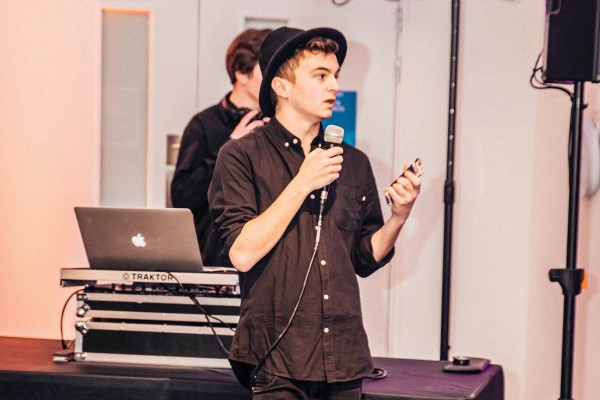“Growing up in New Caledonia, I did not have any sex education, and no safe queer spaces for my young questioning self. I really wanted to be able to provide something I wish I had back in the days.” Thibaut (Tee) Espirit is originally from New Caledonia, which he describes as “a little French island lost in the Pacific”. He moved back to Dunedin in February 2016 and studied Sociology and Criminology here at Otago. He is currently based in Auckland, writing his dissertation about national identity within his country, making him “the happiest person I could ever be”.
During his second year at Otago, Tee started working for OUSA’s Queer Support. From there, the list of organisations Tee was involved with grew exponentially – working for the likes of the Alphabet Soup (a social group for LGBTQIA+ teenagers in Dunedin), Te Whare Tawhārau (providing sexual violence related support within the campus community), RainbowYOUTH (support network for queer, gender diverse and intersex youth), the Otago International Friendship Network (OIFN - connecting international and domestic students with local and international cultures through many events during the semester) and Dunedin Pride (an organisation with a vision to create an inclusive and affirming environment for queer/rainbow* communities).
His roles varied within each organization, from the likes of organising the Pride Hui, the Pink Youth Ball, MCing the International Welcome for OIFN and much more. The biggest theme amongst most of these groups is offering support and services for Dunedin’s LGBTQIA+ community. “I love being busy and creating opportunities for myself and for other people. And that was one way to do it. Getting involved was a sort of proactive procrastination. I’ve learnt so much from all these groups. I was a bit lost when I moved here, so I just wanted to be able to provide help to new students.”
Being involved in all of these groups is no easy feat, but paid off. Tee describes four main reasons why he got involved in these groups as giving back to the community, offering a space for LGBTQIA+ youth, keeping busy, and gaining new skills and experiences. “I’ve learned so much about myself. Through all those things, I have learnt how to become a better person. I found out that I have a passion for everything regarding queer work (and identity), which slowly became my primary field of study through my degrees. I found respect and passion for LGBTQIA+ kids. I’ve always called queer teenagers in Dunedin my kiddos and leaving Dunedin (and therefore leaving them) was super hard and I got emotional. I got close to them, and not only I helped them, but they also helped me understand myself,” said Tee.
“I know that sounds corny as hell, but the international office provided so much for me, especially in my first year, that I got very close to them and really felt like giving back all the support they gave me”.
Tee has also gained confidence that he thought he would never have, as well as learning how to cope under tremendous amounts of stress and pressure. “It was definitely stressful to hold something that big with no previous experience in event managing, and forcing myself to learn was such a fantastic experience. I now have confidence that I never knew I would be able to have. I can now easily speak in front of a big group of people, and that’s something no one thought I would be able to do.”
Studying at Honours level is a laborious task, but that’s not stopping Tee from wanting to get more actively involved in volunteering in Auckland. “I want to get back into volunteering when I find something that motivates me, or actually find a paid part-time job in queer spaces. I think my bigger plan is to slowly recreate myself a network up in Auckland. I was really with all my work and volunteering back down in Dunedin and I really miss that. So slowly trying to get that back here. Once I get adjusted and figure out the scene, I’ll be back there. But don’t worry, I’ll be back visiting Dunedin in no time.”



